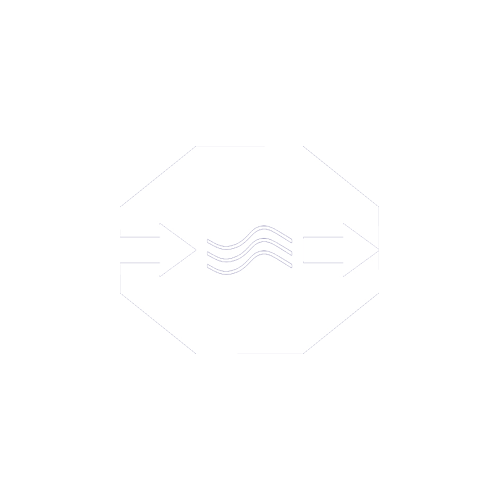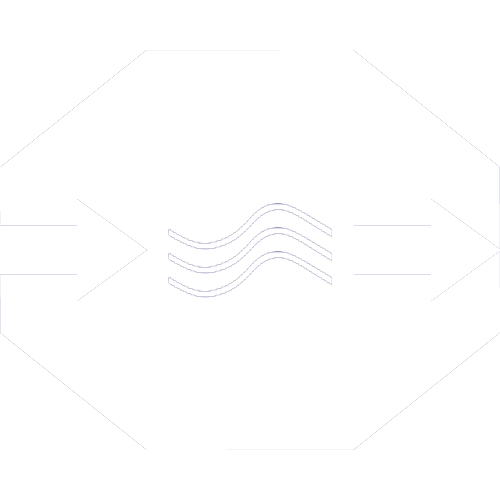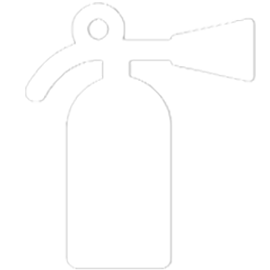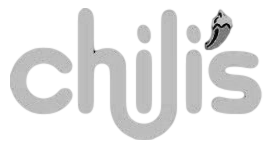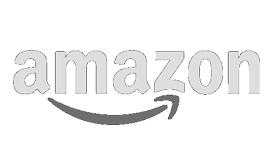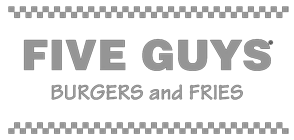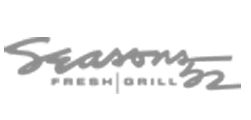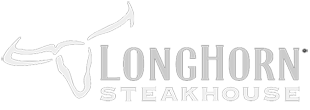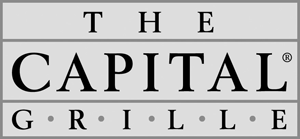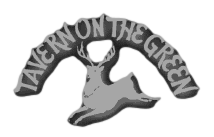Navigating the FDNY Restaurant Regulations and NFPA 96 is critical for any commercial kitchen, where compliance is as much about safety as it is about staying in business. While, non-compliance carries serious penalties, the regulatory system can be complex.
Here, we’ll try to simplify FDNY Restaurant Regulations into a clear guide that helps to showcase how to ensure compliance and safety. We’ll talk about expert hood cleaning, upgrading your kitchen through custom hood installations and advanced fire suppression systems.
Ultimately, we provide NYC restaurants and commercial kitchens with a comprehensive overview that will help to address all regulatory demands.Our goal for this guide is to be an indispensable resource for restaurants to understand and meet NYC’s stringent safety codes with Done Right Hood & Fire Safety as your trusted partner.
An Introduction to FDNY Restaurant Regulations
For New York City’s restaurants, compliance isn’t just regulatory—it’s the cornerstone of community trust and operational longevity. The FDNY regulations and NFPA 96 embody a framework designed to ensure safety and prevent fire hazards in an industry that never sleeps. These stringent codes are not mere suggestions but mandates that if neglected, can result in severe penalties, including hefty fines and operational shutdowns.
The Purpose of FDNY Regulations for Restaurants
FDNY’s Role in Restaurant Safety
The Fire Department of New York (FDNY) plays a pivotal role in ensuring the safety of New York City’s restaurants. Tasked with enforcing the city’s fire code, the FDNY’s remit extends from routine inspections to emergency responses. Their regulations are designed to prevent fire incidents, safeguarding lives and property. By setting strict standards for commercial kitchen operations, the FDNY’s regulations help mitigate the unique risks these environments pose.
 Key FDNY Regulations for NYC Restaurants & Commercial Kitchens
Key FDNY Regulations for NYC Restaurants & Commercial Kitchens
FDNY’s regulations cover a wide array of safety measures. Some of the most pertinent for commercial kitchens include:
- Fire Suppression: Commercial kitchens must have a fire suppression system that meets FDNY specifications, which includes regular maintenance and inspection to ensure functionality in case of a fire.
- Hood and Ductwork: Kitchen hoods and ductwork must be designed to prevent grease buildup, a common fire hazard. These must be cleaned regularly, as dictated by usage levels, to maintain safety standards.
- Portable Fire Extinguishers: Kitchens are required to have Class K fire extinguishers accessible and within a certain distance from cooking equipment.
- Storage of Combustible Materials: Strict regulations govern the storage of combustible materials to prevent fires from starting or spreading.
- Emergency Preparedness: Establishments must have an FDNY-approved fire safety plan and conduct fire drills routinely.
Common Compliance Issues: Case Studies
Case Study 1: Inadequate Fire Suppression
A popular midtown bistro faced severe penalties after an inspection revealed their fire suppression system was not up to code. The nozzles were clogged, and the system hadn’t been inspected in over a year, far exceeding the FDNY’s semi-annual inspection requirement. The bistro was fined and required to cease operations until the system was serviced and certified by a licensed professional.
Case Study 2: Neglected Hood and Duct Cleaning
An established Brooklyn eatery experienced a fire that caused significant damage due to grease accumulation in the exhaust system. Despite regular operations, the establishment had not conducted a professional cleaning for over six months, violating FDNY’s rule which mandates cleaning at intervals related to the volume of cooking.
Case Study 3: Improper Use of Fire Extinguishers
A small café in Queens was cited for not having the proper Class K fire extinguishers. They had a Class ABC extinguisher instead, which is not designed for grease or oil fires typical in kitchens. This oversight resulted in a violation notice and a requirement to purchase and install the correct type of extinguisher.
These case studies illustrate the importance of understanding and adhering to FDNY regulations. Compliance is not just a legal requirement but a fundamental aspect of operational safety. Done Right Hood & Fire Safety specializes in helping restaurants meet these standards, offering expert services to address the unique safety needs of commercial kitchens, ensuring that your establishment is not just compliant, but also prepared and protected.
A Deep Dive into NFPA 96 and Its Impact on NYC Restaurants
Understanding NFPA 96 Standards
The National Fire Protection Association (NFPA) Standard 96, often termed as the “Standard for Ventilation Control and Fire Protection of Commercial Cooking Operations,” sets the benchmark for designing, installing, operating, and maintaining cooking equipment to curb fire risks in commercial kitchens.
It outlines specific requirements for exhaust hood systems, grease removal devices, fire suppression systems, and the clearance of cooking equipment from combustible materials. Regular maintenance and cleaning schedules are also stipulated to prevent fire hazards associated with grease-laden vapors.
Harmonizing FDNY Regulations with NFPA 96
While FDNY regulations enforce local fire safety codes, they are often informed by the broader standards set by NFPA 96. The FDNY recognizes the expertise of NFPA in establishing preventive measures against kitchen fires and incorporates these standards into their own regulations, ensuring that NYC restaurants not only meet local codes but also align with national safety benchmarks.
For instance, the FDNY mandates the installation and maintenance of kitchen hood suppression systems in accordance with the guidelines provided by NFPA 96.
Adhering to NFPA 96 Guidelines
Restaurants must follow a series of practical steps to adhere to NFPA 96 guidelines:
- System Installation and Design: Engage qualified professionals to design and install exhaust systems that meet NFPA 96 standards, ensuring proper ventilation and fire safety.
- Routine Cleaning: Establish a regular cleaning schedule for hoods, ducts, and filters. NFPA 96 requires monthly, quarterly, or semi-annual cleaning, depending on the volume of cooking operations.
- Inspections and Maintenance: Perform frequent inspections and maintenance of the exhaust systems. Document all inspections and cleaning to provide a record of compliance.
- Training Staff: Educate kitchen staff on the proper use and maintenance of cooking equipment, emphasizing practices that reduce the likelihood of grease buildup.
- Fire Suppression Systems: Ensure that automatic fire suppression systems are installed in all cooking areas, serviced bi-annually, and properly linked to the building’s fire alarm system.
- Operational Protocols: Develop protocols that align with NFPA 96 for safe operations, such as the proper handling and disposal of grease and the use of cooking equipment.
By integrating these steps, NYC restaurants can significantly reduce the risk of fire incidents and align with both FDNY and NFPA 96 requirements, demonstrating a commitment to safety and regulatory compliance. Done Right Hood & Fire Safety can assist in navigating these standards, providing expert services that cover every aspect of NFPA 96 compliance, from system installation to ongoing maintenance and staff training.
Navigating FDNY Fire Code Violation Removal
FDNY fire code violations are not uncommon in the bustling kitchens of NYC, where oversights can occur amidst the heat of service. Frequent violations include:
- Improper Storage of Combustible Materials: Storing paper goods or linens near cooking equipment is a frequent misstep.
- Blocked Fire Exits and Passageways: In the quest for space, restaurants sometimes inadvertently block exits and passageways, which must remain clear at all times.
- Lack of Proper Signage: Failing to display the necessary fire safety signs, including those indicating exit routes and the location of fire extinguishers, can result in violations.
- Inadequate Maintenance of Fire Suppression Equipment: Not adhering to the required servicing schedules for fire extinguishers and suppression systems.
- Non-Compliance with Hood Cleaning Regulations: Skipping or delaying the mandatory cleaning of kitchen hoods and ductwork according to the cooking volume can lead to violations.
Strategies for Avoiding Violations of FDNY Restaurant Regulations
To avoid these common violations, restaurants should:
- Implement Regular Safety Checks: Conduct daily or weekly checks to ensure all areas comply with FDNY codes.
- Educate Staff: Train staff on fire safety standards and the importance of maintaining clear passageways and proper storage practices.
- Maintain Equipment: Keep a strict maintenance schedule for all fire safety equipment and ensure records of servicing are up-to-date and readily available.
- Consult Experts: Work with fire safety professionals to conduct regular audits and get guidance on best practices for compliance.
Done Right Hood & Fire Safety: FDNY Restaurant Regulations Violation Removals
Done Right Hood & Fire Safety provides specialized services to address and rectify FDNY fire code violations:
- Compliance Audits: Conducting thorough inspections to identify potential violations before they are flagged by FDNY.
- Customized Maintenance Plans: Creating tailored maintenance schedules for fire suppression systems and exhaust cleaning, based on the specific needs and cooking volumes of each restaurant.
- Remediation Services: Assisting with the immediate correction of any existing violations, from clearing blocked passageways to installing proper signage.
- Documentation and Record-Keeping: Helping restaurants maintain accurate records of all maintenance and safety measures as proof of compliance for FDNY inspections.
- Training Programs: Offering staff training sessions on fire safety protocols and best practices to prevent future violations.
By leveraging Done Right Hood & Fire Safety’s expertise, restaurants can navigate the complexities of FDNY fire code compliance, rectify violations promptly, and establish preventative practices to ensure ongoing adherence, thereby maintaining a safe environment for both customers and staff.
Ensuring Safety and Sustainability in NYC Restaurants
Professional Hood Cleaning and System Maintenance
Regular hood cleaning is a cornerstone of kitchen compliance, crucial for fire safety and health standards. Done Right Hood & Fire Safety’s professional cleaning services not only comply with but exceed FDNY regulations, ensuring that grease buildup — a primary fire hazard — is meticulously managed.
Our approach mitigates risks that DIY cleaning inevitably miss, offering restaurants peace of mind and a higher standard of cleanliness and safety.
 Custom Hood Fabrication and Advanced Fire Suppression
Custom Hood Fabrication and Advanced Fire Suppression
Proper fabrication and installation of kitchen hoods are pivotal in maintaining a fire-safe environment. Our custom solutions are designed to meet FDNY’s stringent standards, tailored to each kitchen’s specific needs.
Combined with advanced fire suppression systems, which are a mandatory requirement, we provide the latest technology to protect your establishment.These systems are integral to compliance, acting as the first line of defense against potential fires.
Grease Trap Maintenance and Eco-Friendly Practices
Beyond cleaning, maintaining grease traps and recycling waste oil are essential for both environmental stewardship and compliance with city regulations. Done Right Hood & Fire Safety’s maintenance services ensure that your restaurant operates efficiently and contributes to a greener city, aligning with sustainability goals and regulatory demands.
Innovative Solutions: Electrostatic Precipitators
Looking to the future, electrostatic precipitators represent the next wave in kitchen safety technology. They effectively capture grease and smoke particles, vastly improving air quality and reducing fire risks. Our offerings in this domain place your restaurant at the forefront of compliance and innovation, ready to meet both current and emerging regulatory standards.
How Done Right Hood & Fire Safety Ensures Compliance with FDNY Restaurant Regulations
Done Right Hood & Fire Safety is dedicated to providing a suite of services that ensure NYC restaurants not only comply with today’s standards but are also prepared for tomorrow’s challenges. From professional hood cleaning to the installation of cutting-edge fire suppression and air filtration systems, we ensure that your kitchen operations are safe, sustainable, and aligned with both FDNY regulations and environmental best practices.
Our commitment to excellence in service and innovation positions our clients as leaders in both safety and environmental responsibility in the restaurant industry.
Wrapping Up FDNY Restaurant Regulations
Now, let’s wrap up our deep dive into New York City’s FDNY restaurant regulations. In addition to providing a comprehensive overview, we hope we’ve underscored the crucial role of compliance in sustaining the growth of your restaurant or commercial kitchen.
We’ve delved into FDNY’s rigorous fire safety codes, the comprehensive standards of NFPA 96, and the repercussions that non-compliance can incur. We’ve also explored the breadth of services offered by Done Right Hood & Fire Safety, each designed to address a specific facet of compliance—from professional hood cleaning to the advanced protection offered by fire suppression systems, and the eco-conscious practices surrounding grease trap maintenance and waste oil recycling.
Done Right Hood & Fire Safety extends beyond mere service provision; we are consultants, allies, and advocates for your restaurant’s continued prosperity. We invite you to leverage our expertise for a comprehensive compliance consultation that will not only prepare you for FDNY inspections but also position you as a leader in kitchen safety and environmental responsibility.
Our team is dedicated to equipping your restaurant or commercial kitchen with the tools and knowledge needed to thrive in NYC’s demanding landscape.
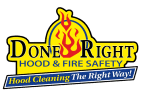
 Key FDNY Regulations for NYC Restaurants & Commercial Kitchens
Key FDNY Regulations for NYC Restaurants & Commercial Kitchens Custom Hood Fabrication and Advanced Fire Suppression
Custom Hood Fabrication and Advanced Fire Suppression